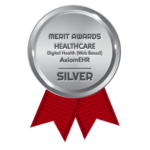Clear, crisp communication can be a life-or-death matter, especially in health care. Rarely, if ever, is a patient limited to a single caregiver for a prolonged period. Rather, health care is a team sport, whether in an office visit, surgery, or ongoing treatment. Communication makes it work.
Team communication is especially important in integrated health systems, where clinicians care for patients who face both physical and behavioral health challenges.
Such patients are more common than we think because the mind-body connection is so unified. Depression, for example, can sap a person’s energy, trigger emotional eating, exacerbate obesity, and spawn a constellation of associated physical ailments. Chronic back pain can fuel depression, substance abuse, and family dysfunction.
The mind-body disconnect
Despite the mind-body connection in human beings, communication between behavioral health and traditional medical teams is rarely seamless. Although clinicians do their best to obtain the latest available information about a patient they’re about to see, that information is often scant or incomplete. Too often, there’s a gap between medical and behavioral health information because the data resides in entirely different places. As a result, the quality of care falls short. And the cost of errors is steep: One in 10 U.S. deaths are now due to medical error, and nearly 2 out of 3 of those errors is rooted in poor communication among the care team.
In addition to causing medical errors, shortcomings in medical records devour valuable time and energy from clinicians who should be engaging with patients. Excessive administrative work, hardly the reason healers choose their calling, burns these professionals out.
Solution: New electronic health record powered by AI
We believe a major part of the solution to the errors and burnout is providing care professionals with a “whole-patient” view of the client at every encounter. This improvement requires not only process change, but a new kind of electronic health record. Now being implemented in several integrated health care settings, Axiom is a smarter EHR that presents clinicians, case managers and support staff from either side of the caregiving divide with a succinct synopsis of the patient they’re about to see. It integrates medical and psychiatric diagnoses, medications, and other relevant records.
Axiom employs artificial intelligence – no longer a futuristic buzzword but a real technology – to learn the needs and preferences of every user. It recognizes the user’s voice as it captures notes from a patient encounter, and the machine learning algorithm is trained to learn where to place the information from the training dataset. The results from each interaction are then applied to larger datasets and are both enhanced and refined over time.
Synthesized patient information is available to every authorized clinician and office staffer on every device they might use, including tablets and smartphones. And AxiaGram is a mobile communications app that seamlessly integrated with Axiom, supporting information exchange and collaboration in much the same, intuitive way that social media apps operate, with relevant feeds, notifications, groups, and messaging.
AxiaGram Connect also lets patients take more control of their own care, which can be a healing activity in itself. Through a self-service interface, patients can schedule their own appointments, initiate prescription refills, see lab results, review notes, and access educational materials. Robust self-service can reduce provider costs while delivering more patient value.
But the biggest value in a better EHR is improving communication among health care teams, potentially reducing the errors that can make a patient sicker and tragically claim lives. Streamlined communication can also fend off the burnout that discourages brilliant clinicians from thriving in their calling.
Health care is a team sport. Let’s empower the teams.





